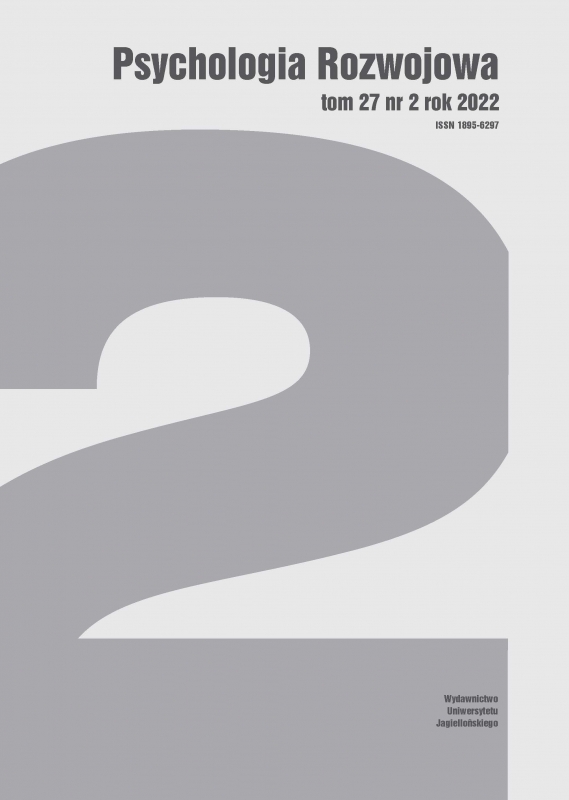Funkcje wykonawcze u dzieci – dysonans między obserwacją dorosłego a umiejętnościami dziecka
Executive Functions in Children – Dissonance between Adult Observation and Child’s Skills
Author(s): Natalia JózefackaSubject(s): Social Sciences, Psychology, Cognitive Psychology, Developmental Psychology, Behaviorism
Published by: Wydawnictwo Uniwersytetu Jagiellońskiego
Keywords: executive functions; cognitive processes; developmental environment
Summary/Abstract: Introduction: Executive functions have been the subject of intensive research in recent years. Both questionnaire tools and experimental tasks are used to measure them. A review of the literature on the subject indicates a significant but weak relationship between these two methods of measurement. It is worth emphasizing that, in the case of children, questionnaire measurement is very prone to errors caused by differences between indirect observation by parents or teachers. Aim: The aim of this article is to increase the current knowledge of the relationship between questionnaire measures and experimental tasks. In particular, this study aims to investigate differences between the observations of parents and teachers in the assessment of working memory and inhibition in children. The relationship between experimental and questionnaire tasks is studied, and a hypothesis regarding a stronger relationship between these two methods of measurement using latent variables is verified. Study group: The study was conducted on a group of 200 children, aged 5–6, attending preschool or the first grade of primary school. Result: In the analyzed group, the differences between the answers of teachers and parents were significant, but the effect size was low. The relationship between the individual subscales was also moderate. The relationship between questionnaire measurements and experimental tasks in the study group has been confirmed by other studies. The correlation coefficient between parents’ and teachers’ assessments is significant and low, ranging from 0.19 to 0.30. Conclusions: In conclusion, the obtained results confirm the observations of other researchers: task-based and questionnaire-based measures evaluate different constructs. Questionnaires capture more global expressions of executive functions in different life contexts (home, school) over longer periods of time, while experimental tasks assess basic cognitive abilities in a more predictable and structured environment.
Journal: Psychologia Rozwojowa
- Issue Year: 27/2022
- Issue No: 2
- Page Range: 89-98
- Page Count: 10
- Language: Polish

